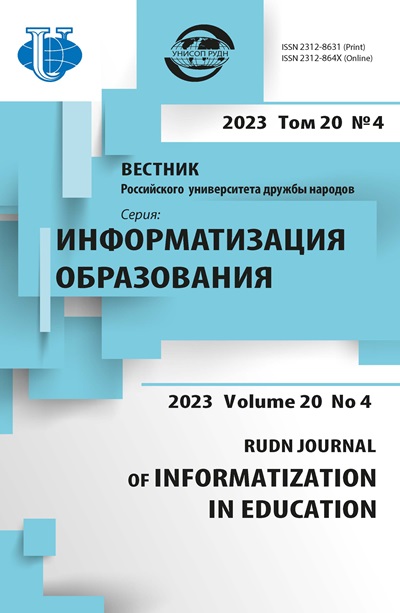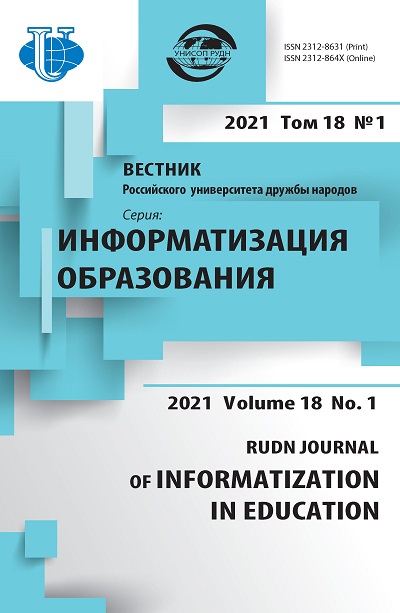Methodology and features of assessing the economic effect of implementing digital educational environment models in secondary vocational and higher education systems
- Authors: Fedotov A.V.1, Polushkina E.A.1
-
Affiliations:
- Russian Presidential Academy of National Economy and Public Administration
- Issue: Vol 18, No 1 (2021)
- Pages: 62-80
- Section: FORMATION OF INFORMATION EDUCATIONAL MEDIUM
- URL: https://journals.rudn.ru/informatization-education/article/view/26280
- DOI: https://doi.org/10.22363/2312-8631-2021-18-1-62-80
Cite item
Full Text
Abstract
Problem and goal. The active introduction of e-learning and distance learning technologies in the educational process, the reform of traditional models of learning and education have become priority areas of reforms and initiatives in various national education systems in the 21st century. Given that public spending is the main source of funding for education in the OECD countries, assessing the economic impact of implementing a digital educational environment at different levels of education under pressure on public budgets has become a key issue for national governments and educational organizations, as well as the subject of special research. In Russian practice assessment of the economic effect of the full-scale use of e-learning and distance learning technologies in the implementation of educational programs of secondary professional (training of middle-level specialists) and higher education have not yet been carried out. For these purposes, a methodology has been developed, which, however, needs to be tested. Results. The study identified a list of costs required to ensure the full use of e-learning and distance educational technologies in realization of educational programs of secondary vocational (training of mid-level professionals) and higher (including graduate school) education; the methodlogy for assessing the economic effect of these measures is justified, and calculations are made based on this methodology. Conclusion. The developed methodology has shown its effectiveness and needs further research and quantitative analysis.
About the authors
Alexander V. Fedotov
Russian Presidential Academy of National Economy and Public Administration
Author for correspondence.
Email: fedotov-av@ranepa.ru
Doctor of Economics, Professor, chief researcher
82 Prospekt Vernadskogo, Moscow, 119571, Russian FederationElena A. Polushkina
Russian Presidential Academy of National Economy and Public Administration
Email: polushkina-ea@ranepa.ru
Deputy Director of the Centre for Lifelong Learning Economics
82 Prospekt Vernadskogo, Moscow, 119571, Russian FederationReferences
- Blinova TN, Fedotov AV. Higher education of the far Eastern macroregion: compliance with development needs and demand. University Management: Practice and Analysis. 2018;22(6):55–71. (In Russ.)
- Report on the research work “The system of continuing education as a mechanism for social and professional development of various groups of the population” (intermediate)]. Moscow: RANHiGS Publ.; 2020. (In Russ.)
- Battaglino TB, Haldeman M, Laurans E. The costs of online learning. Washington DC: The Thomas B. Fordham Institute; 2012.
- Wiley J, Hilton L, Ellington H, Hall F. A preliminary examination of the cost savings and learning impacts of using open textbooks in middle and high school science classes. The International Review of Research in Open and Distance Learning. 2012;13:262–276.
- The NMC Horizon Report: 2015 Higher Education Edition. The New Media Consortium; 2015.
- Nikulina TV. Indicators of the effectiveness of educational activities with the use of e-learning in the framework of state accreditation Informatsionno-Kommunikatsionnye Tekhnologii v Pedagogicheskom Obrazovanii. 2015:109. (In Russ.)
- Prohorova MP, Vaganova OI. Possibilities of attracting university teachers in the development of open online courses. Otechestvennaya i Zarubezhnaya Pedagogika. 2019; 5(62):134–145. (In Russ.)
- Hollands FM, Tirthali D. Resource requirements and costs of developing and delivering MOOCs. The International Review of Research in Open and Distributed Learning. 2014;15(5):171–182.
- Markova GA. Using massive open online courses while teaching. Era of Science. 2020; (21):99–108.
- Kolbe AS. Approach to creating academic mass open online courses. Novye Informatsionnye Tekhnologii v Avtomatizirovannykh Sistemakh. 2014;(17):88–97. (In Russ.)
- Timoshin SP, Belaga VV. Web-service for integration of current information from the leading MOOCs. Open Education. 2017;(4):135–146. (In Russ.)
- Gotskaya IB, Zhuchkov VM. Current state, problems and prospects of development of popular open online courses. Prepodavatel XXI vek. 2016;(4):51–67. (In Russ.)
- Krasnova GA, Mozhaeva GV. Elektronnoe obrazovanie v epohu cifrovoj transformacii [Electronic education in the era of digital transformation]. Tomsk; 2019. (In Russ.)
















